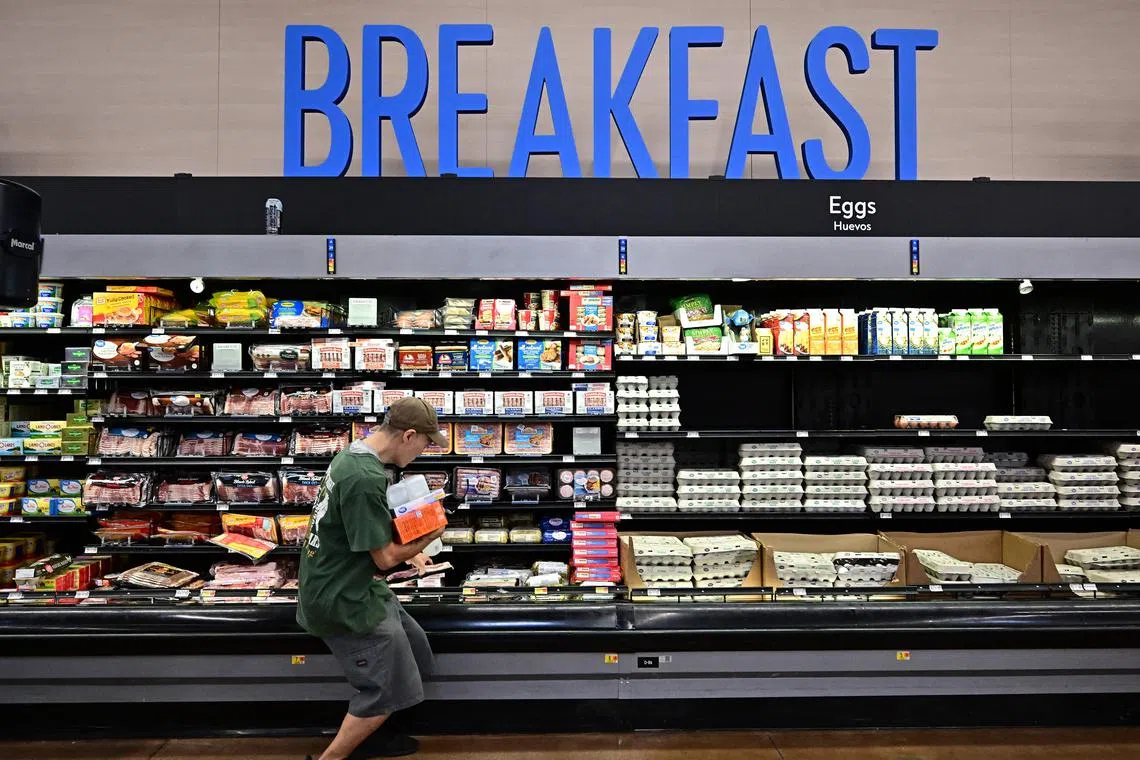For subscribers
The political cost of inflation: A lesson from the US election
Higher prices for basic foodstuff like eggs tend to linger in voters’ minds. The Biden-Harris administration is not the only government to be punished for it at election time.
Sign up now: Get ST's newsletters delivered to your inbox

A majority of those citing the "bad" economy as their main concern voted for Donald Trump.
PHOTO: AFP
As an economist living in Michigan, an electoral “swing state” in the United States, I have been asked by many Singaporeans what role the economy played in Donald Trump’s victory
From the perspective of economists, the US economy has been called “the envy of the world”, enjoying robust gross domestic product growth, strong job creation, unemployment at near-record lows, wages rising faster than moderating inflation, a booming stock market, and world-leading technological innovation and productivity growth.



